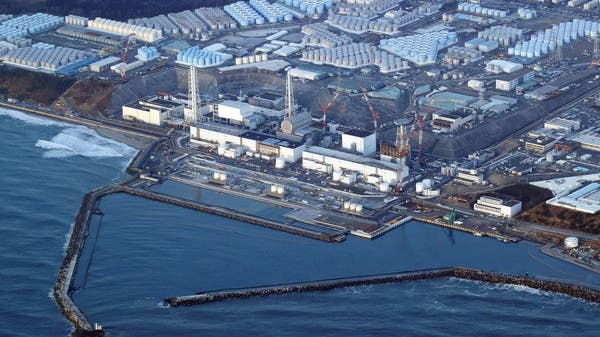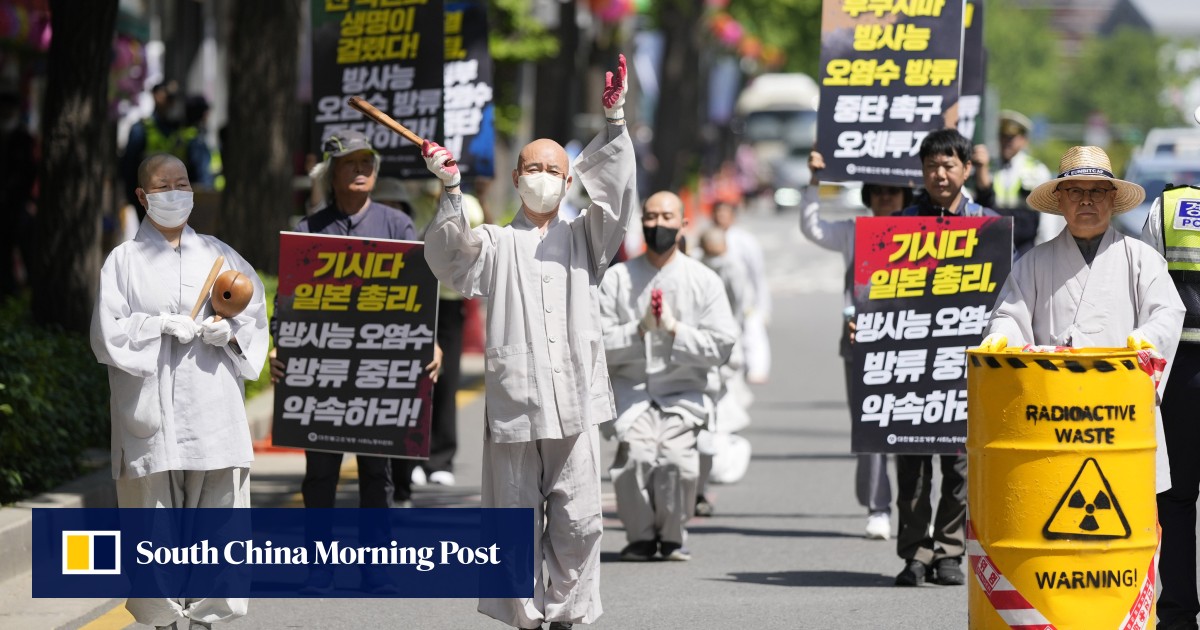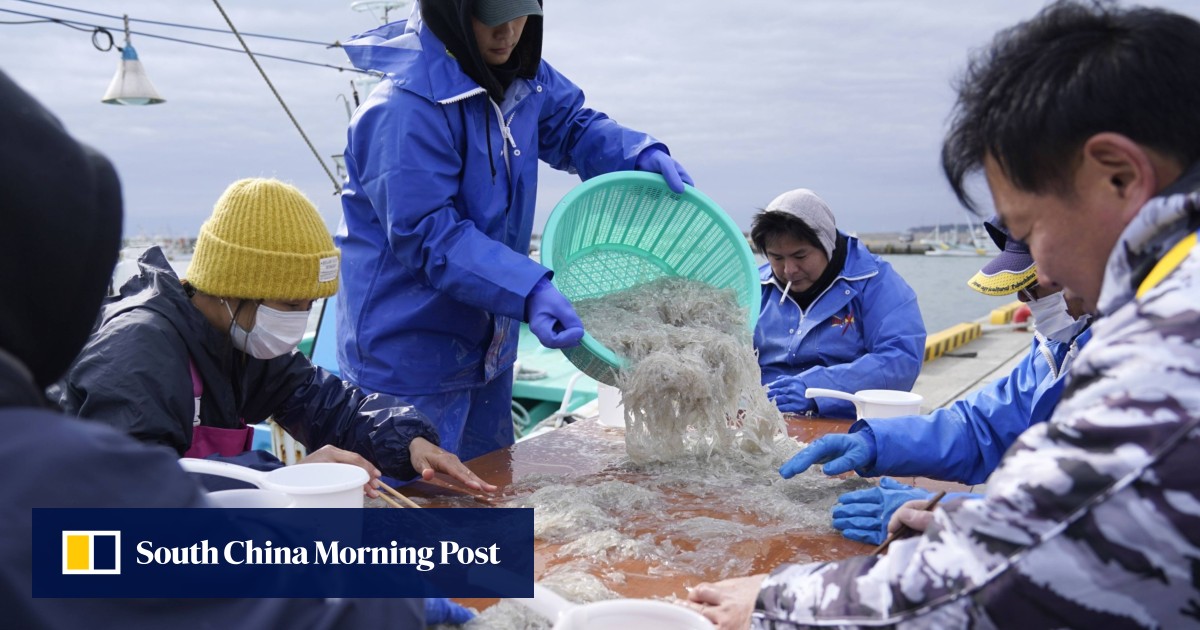beijingwalker
ELITE MEMBER

- Joined
- Nov 4, 2011
- Messages
- 65,191
- Reaction score
- -55
- Country
- Location
Japan worried of China seafood ban after release of Fukushima nuclear water
Reuters
Published: 06 July ,2023: 02:14 PM GST
Japanese officials are worried that China, the biggest buyer of its seafood exports, may halt purchases of those items after Tokyo begins releasing treated radioactive water from its crippled Fukushima nuclear plant into the sea.
The UN nuclear watchdog this week gave Japan the greenlight to begin discharging more than a million metric tons of water, enough to fill 500 Olympic swimming pools, used to cool the plant’s fuel rods after it was wrecked by a 2011 tsunami
The planned release of the water from the plant north of Tokyo has faced opposition at home and abroad despite Japanese assurances that it is safe after being filtered to remove most isotopes.
China was the biggest buyer of Japanese seafood exports last year, even though it is among several countries that restrict imports from some Japanese regions because of the nuclear accident.
China is also the fiercest critic of Japan’s planned release of the water saying it threatens marine life and human health.
China has not said what action it will take if the release goes head but it has warned Japan that it must “bear all the consequences” of its action. The release is due to start in coming weeks and take up to 40 years.
Three Japanese government officials and a ruling party lawmaker, speaking on condition of anonymity given the sensitivity of the issue, said they expected China to expand restrictions on Japanese seafood. Two of the officials said that could include a blanket ban.
“We think they may enforce a total ban on Japanese maritime products,” one of the officials said. “They want to punish Japan economically for this.”
“For China, Japanese maritime product imports make up a small share of their market ... but for Japan this is a big market.”
China’s foreign ministry said on Thursday Japan did not fully consult the international community on the release and China would pay close attention to developments and would assess any possible effects to protect consumers.
Biggest buyer
Japan’s foreign ministry declined to comment on the possibility of more bans but said Japan had sought scientific discussions with China on the release and would continue to do so.
China bans seafood imports from 10 of Japan’s 47 prefectures, including Fukushima and the capital Tokyo, and all food and feed imports from nine of them.
Seafood imports from other prefectures are allowed but must be tested for radioactivity.
The vast majority of seafood caught by Japan’s fishing industry is consumed at home but China was the biggest buyer of Japanese seafood exports last year by value despite its bans, according to Japanese data.
China accounted for 22.5 percent of Japanese seafood exports, worth 87 billion yen ($604 million), followed by Hong Kong with 19.5 percent and the US with 13.9 percent. China buys more than half of all Japanese scallop exports.
The China-ruled city of Hong Kong said on Tuesday that when Japan begins the release it would “immediately take control measures, including imposing import control on aquatic products from high-risk prefectures.”
China has said it will step up monitoring of the ocean and marine products in the wake of the release.
South Korea, where consumers have been snapping up sea salt and other items ahead of the release, has also pledged to step up monitoring to try and allay concerns but has not threatened to expand its bans on Japanese products.
In China, some consumers have called for boycotts of Japanese products, a social media trend that briefly knocked the share price of Japanese cosmetics maker Shiseido last week.

 www.google.com.hk
www.google.com.hk
Reuters
Published: 06 July ,2023: 02:14 PM GST
Japanese officials are worried that China, the biggest buyer of its seafood exports, may halt purchases of those items after Tokyo begins releasing treated radioactive water from its crippled Fukushima nuclear plant into the sea.
The UN nuclear watchdog this week gave Japan the greenlight to begin discharging more than a million metric tons of water, enough to fill 500 Olympic swimming pools, used to cool the plant’s fuel rods after it was wrecked by a 2011 tsunami
The planned release of the water from the plant north of Tokyo has faced opposition at home and abroad despite Japanese assurances that it is safe after being filtered to remove most isotopes.
China was the biggest buyer of Japanese seafood exports last year, even though it is among several countries that restrict imports from some Japanese regions because of the nuclear accident.
China is also the fiercest critic of Japan’s planned release of the water saying it threatens marine life and human health.
China has not said what action it will take if the release goes head but it has warned Japan that it must “bear all the consequences” of its action. The release is due to start in coming weeks and take up to 40 years.
Three Japanese government officials and a ruling party lawmaker, speaking on condition of anonymity given the sensitivity of the issue, said they expected China to expand restrictions on Japanese seafood. Two of the officials said that could include a blanket ban.
“We think they may enforce a total ban on Japanese maritime products,” one of the officials said. “They want to punish Japan economically for this.”
“For China, Japanese maritime product imports make up a small share of their market ... but for Japan this is a big market.”
China’s foreign ministry said on Thursday Japan did not fully consult the international community on the release and China would pay close attention to developments and would assess any possible effects to protect consumers.
Biggest buyer
Japan’s foreign ministry declined to comment on the possibility of more bans but said Japan had sought scientific discussions with China on the release and would continue to do so.
China bans seafood imports from 10 of Japan’s 47 prefectures, including Fukushima and the capital Tokyo, and all food and feed imports from nine of them.
Seafood imports from other prefectures are allowed but must be tested for radioactivity.
The vast majority of seafood caught by Japan’s fishing industry is consumed at home but China was the biggest buyer of Japanese seafood exports last year by value despite its bans, according to Japanese data.
China accounted for 22.5 percent of Japanese seafood exports, worth 87 billion yen ($604 million), followed by Hong Kong with 19.5 percent and the US with 13.9 percent. China buys more than half of all Japanese scallop exports.
The China-ruled city of Hong Kong said on Tuesday that when Japan begins the release it would “immediately take control measures, including imposing import control on aquatic products from high-risk prefectures.”
China has said it will step up monitoring of the ocean and marine products in the wake of the release.
South Korea, where consumers have been snapping up sea salt and other items ahead of the release, has also pledged to step up monitoring to try and allay concerns but has not threatened to expand its bans on Japanese products.
In China, some consumers have called for boycotts of Japanese products, a social media trend that briefly knocked the share price of Japanese cosmetics maker Shiseido last week.
Japan worried of China seafood ban after release of Fukushima nuclear water
Japanese officials are worried that China, the biggest buyer of its seafood exports, may halt purchases of those items after Tokyo begins releasing treated
Last edited:












